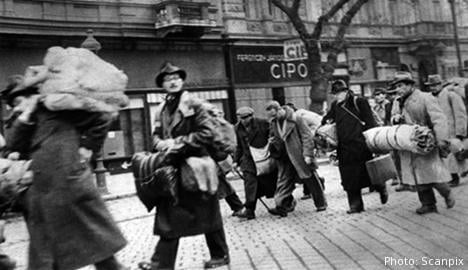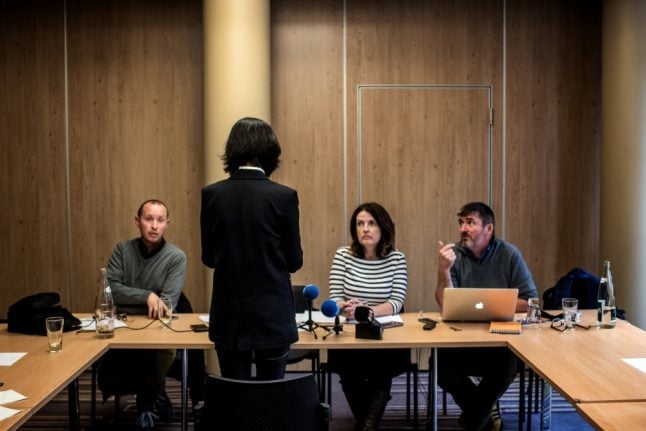On Saturday August 4th, Raoul Wallenberg would have turned one hundred years old. This year, his centennial is observed in close to sixty countries all over the world.
The reason for this is of course his personal achievement; that he stands out among the many that risked or sacrificed their lives in order to save innocents during the Second World War.
Raoul Wallenberg is the most internationally known Swede – with parks, streets, monuments named after him all over the world.
RELATED GALLERY: WHAT DO SWEDES KNOW OF RAOUL WALLENBERG?
Raoul Wallenberg’s life is highly symbolic. He risked his life to fight one of the most horrifying ideologies of the dark twentieth century, Nazism, and was a victim of another, communism. Exactly how and when he died we still do not know, but we believe that Raoul Wallenberg was killed in custody in the Soviet.
Raoul Wallenberg is the epitome of the accidental hero. No one could have anticipated that the young businessman, educated in the US as an architect, was to turn out as one of the heroes of our time; as an icon for human rights.
It is an example of how a man can step up when faced with the utmost evil.
During autumn 1944, the Nazis deported close to half a million Jews from the Hungarian countryside to the concentration camps in Auschwitz-Birkenau. Now, obviously, the turn had come to the 230,000 Jews in Budapest. The US, awakening late to the fate of the Jews, established the World Refugee Board, in order to save the remaining Jews in Europe. And they defined Budapest as the most crucial place.
The Americans turned to the neutral nations, who were diplomatically represented in Budapest. Several of them had distributed passports to Jews connected to their countries.
Now, the US urged the neutral countries to send more special representatives in order to enlarge and hasten the operation with the protective documents. The other neutral nations refused, Sweden complied.
And then by a serendipitous twist of fate, the office of the American diplomat given the task of identifying a candidate for the job in Budapest was located in a building on Strandvägen in Stockholm, in the same property where Raoul Wallenberg had his office.
The American met Wallenberg’s boss, Koloman Lauers, in the building’s elevator. He asked if Lauers – who was a Jew from Budapest – had any idea of who could be a good candidate for the task. And Lauers proposed his young colleague Raoul Wallenberg.
A few months later Wallenberg was approved by the Swedish Foreign Ministry and on his way as a junior diplomat, arriving in Budapest July 9th 1944.
The organization Raoul Wallenberg immediately started is considered to be the most effective operation of its time and led to the survival of more than 100.000 Jews in Budapest.
Raoul Wallenberg could have chosen another life, more conventional and more comfortable. Instead he followed an inner calling.
Raoul Wallenberg’s achievement shows the difference a single person can make. ”One man can make a difference” are the words over the entrance to the Raoul Wallenberg School in Brooklyn – one of the many schools all over the world in his name.
Dictatorial madness is still rampant. Anti-Semitism is far from gone. People are oppressed in many places. Even in nations that call themselves enlightened, minorities of different kinds are persecuted. So where are the Raoul Wallenbergs of today?
In this lies the importance of Raoul Wallenberg today. Of course his person is worth honouring. But even more the idea that one individual, driven by an inner sense of justice, can save the lives of thousands.
It begins with each of us – in the streets, in the schools or workplaces, in our human relations. We have a chance to stand up against evil.
Therefore the best commemorative activity this year will be to use the Raoul Wallenberg Centennial in schools and among young people to raise the awareness of the responsibility of the individual.
Olle Wästberg
National Coordinator for the Swedish Raoul Wallenberg Centennial



 Please whitelist us to continue reading.
Please whitelist us to continue reading.
Member comments